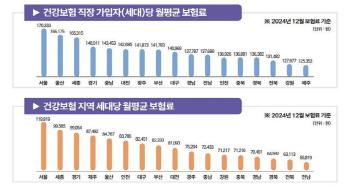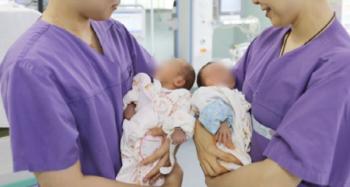Malignant ascites, mostly sterile...Confirmation of immune cell decline
Jun 02, 2025
As cancer progresses, some patients develop 'mal ascites' in which body fluid accumulates in the abdominal cavity. Excessive accumulation of ascites is known to significantly reduce the patient's quality of life due to abdominal distention, pain, and difficulty breathing, as well as poor prognosis. However, the cause of the occurrence of malignant ascites and the resulting microbiological and immunological characteristics have not yet been sufficiently identified.
In response, a research team led by Yoon Jin-ah, a professor of tumor blood at Soonchunhyang University Bucheon Hospital, published the results of a study that identified the microbial community and immune environment of malignant ascites by comprehensively analyzing intestines, bladder, and ascites.
The research team compared and analyzed a total of 66 cancer patients with malignant ascites (20 patients) and patients without malignant ascites (46). 16S rRNA gene sequencing and flow cytometry were performed on samples collected from the intestines, bladder, and ascites of each patient to evaluate microbial diversity and immune cell distribution.
As a result, the microbial load in the ascites fluid was very low, confirming that most were sterile. The microbial community in the intestine and bladder did not differ significantly depending on the presence or absence of ascites, but the proportion of Clostridia and Gammaproteobacteria, known as inflammatory bacteria, was relatively high in patients with peritoneal metastasis, and on the contrary, the proportion of beneficial bacteria such as Bacilli was high in patients without peritoneal metastasis. This suggests that certain microbiota may affect the metastasis of tumors and the formation of multiple immune environments.
In a sub-analysis of only patients with colorectal cancer, the intestinal microbial diversity of stage 4 patients was significantly higher than that of stage 1 patients, and conversely, the bladder microbial diversity tended to decrease. This means that the intestine and bladder each have an independent microbial ecosystem and respond differently depending on tumor load and systemic inflammatory status.
Immunocyte analysis in ascites fluid showed a significant decrease in T cells and NK cells, indicating that the immune environment in ascites was immunosuppressive. Such an immunosuppressive environment may be the basis for helping the immune evasion of tumors and promoting peritoneal metastasis.
Professor Jin-ah Yoon stressed that "This study is the first attempt to analyze the intestinal and bladder microbiomes together in patients with malignant ascites and peritoneal metastases, suggesting that ascites are not just tumor by-products, but independent tumor microenvironment in which microorganisms and immune factors work in combination.". In addition, the interaction between the microbiota and immune cells in ascites may be an important clue to the discovery of new diagnostic markers and the establishment of immuno-based treatment strategies in the future" he said.
The research team plans to conduct follow-up studies in the future to develop anticancer-assisted treatment strategies targeting specific microorganisms, develop immunomodulatory treatments using intestinal beneficial bacteria, and discover microbial diagnostic markers that can predict peritoneal metastasis or disease progression early. In addition, by introducing large-scale longitudinal studies and high-level omics analysis technologies such as metagenomics and metabolomics, we plan to precisely identify the microbial-immune interactions of malignant ascites and lead to customized treatment strategies for patients with advanced cancer.
The results of this study were recently published in the international academic journal 『Cancers" and were carried out with research funding from the Ministry of Science and ICT and the Korea Research Foundation.
In response, a research team led by Yoon Jin-ah, a professor of tumor blood at Soonchunhyang University Bucheon Hospital, published the results of a study that identified the microbial community and immune environment of malignant ascites by comprehensively analyzing intestines, bladder, and ascites.
The research team compared and analyzed a total of 66 cancer patients with malignant ascites (20 patients) and patients without malignant ascites (46). 16S rRNA gene sequencing and flow cytometry were performed on samples collected from the intestines, bladder, and ascites of each patient to evaluate microbial diversity and immune cell distribution.
As a result, the microbial load in the ascites fluid was very low, confirming that most were sterile. The microbial community in the intestine and bladder did not differ significantly depending on the presence or absence of ascites, but the proportion of Clostridia and Gammaproteobacteria, known as inflammatory bacteria, was relatively high in patients with peritoneal metastasis, and on the contrary, the proportion of beneficial bacteria such as Bacilli was high in patients without peritoneal metastasis. This suggests that certain microbiota may affect the metastasis of tumors and the formation of multiple immune environments.
In a sub-analysis of only patients with colorectal cancer, the intestinal microbial diversity of stage 4 patients was significantly higher than that of stage 1 patients, and conversely, the bladder microbial diversity tended to decrease. This means that the intestine and bladder each have an independent microbial ecosystem and respond differently depending on tumor load and systemic inflammatory status.
Immunocyte analysis in ascites fluid showed a significant decrease in T cells and NK cells, indicating that the immune environment in ascites was immunosuppressive. Such an immunosuppressive environment may be the basis for helping the immune evasion of tumors and promoting peritoneal metastasis.
Professor Jin-ah Yoon stressed that "This study is the first attempt to analyze the intestinal and bladder microbiomes together in patients with malignant ascites and peritoneal metastases, suggesting that ascites are not just tumor by-products, but independent tumor microenvironment in which microorganisms and immune factors work in combination.". In addition, the interaction between the microbiota and immune cells in ascites may be an important clue to the discovery of new diagnostic markers and the establishment of immuno-based treatment strategies in the future" he said.
The research team plans to conduct follow-up studies in the future to develop anticancer-assisted treatment strategies targeting specific microorganisms, develop immunomodulatory treatments using intestinal beneficial bacteria, and discover microbial diagnostic markers that can predict peritoneal metastasis or disease progression early. In addition, by introducing large-scale longitudinal studies and high-level omics analysis technologies such as metagenomics and metabolomics, we plan to precisely identify the microbial-immune interactions of malignant ascites and lead to customized treatment strategies for patients with advanced cancer.
The results of this study were recently published in the international academic journal 『Cancers" and were carried out with research funding from the Ministry of Science and ICT and the Korea Research Foundation.
|
This article was translated by Naver AI translator.














